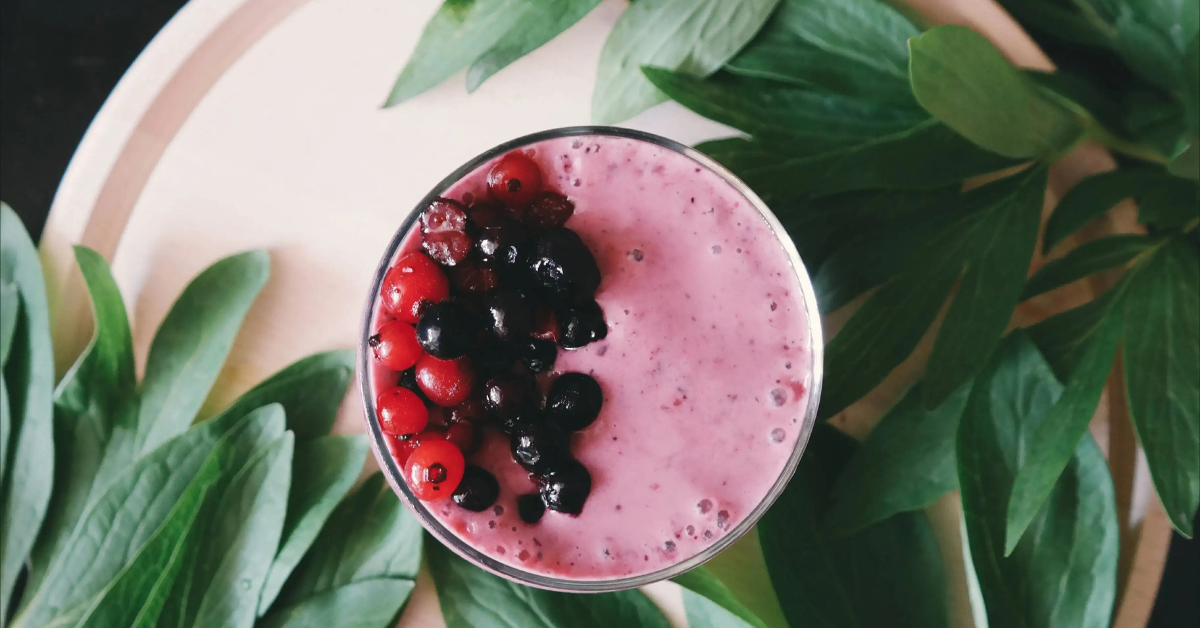The Best Gluten-Free Diet for Mental Health

Are you tired of feeling mentally drained and overwhelmed? Gluten-Free Diet for Mental Health; Have you ever considered that the food you eat could be impacting your mental health? Well, it’s time to take a closer look at the relationship between gluten and your well-being.
In this discussion, we will explore the potential benefits of a gluten-free diet for your mental health. From anxiety and depression to ADHD and bipolar disorder, we will uncover the connections between gluten and these conditions. But it doesn’t end there – we will also provide you with practical tips on how to stay gluten-free and even share some delicious recipes to support your mental health. So, get ready to discover a whole new world of possibilities for your well-being.
Understanding Gluten and Mental Health
Understanding the relationship between gluten and mental health can provide valuable insights into how diet can impact your overall well-being. Research has suggested that a gluten-free diet may have potential benefits for individuals struggling with depression and cognitive function.
Depression is a common mental health condition that affects millions of people worldwide. Studies have found a possible link between gluten sensitivity and depression. Gluten is a protein found in wheat, barley, and rye, and some individuals may have difficulty digesting it. This can lead to inflammation in the gut, which may impact the production of serotonin, a neurotransmitter that plays a crucial role in mood regulation. By adopting a gluten-free diet, individuals with gluten sensitivity may experience improvements in their mood and overall mental well-being.
Furthermore, gluten has been shown to have an impact on cognitive function. Some individuals with gluten sensitivity or celiac disease may experience brain fog, difficulty concentrating, and memory problems after consuming gluten-containing foods. This could be due to the inflammatory response triggered by gluten in the body, which may affect the brain’s functioning. By eliminating gluten from your diet, you may experience an improvement in cognitive function and mental clarity.
It is important to note that not everyone will experience the same benefits from a gluten-free diet. If you suspect that gluten may be affecting your mental health, it is recommended to consult with a healthcare professional, such as a registered dietitian or a psychiatrist, who can provide guidance and support. They can help determine if a gluten-free diet is appropriate for you and help you navigate the challenges that may come with adopting this dietary change.
The Impact of Gluten on Anxiety
If you struggle with anxiety, you may be interested to know that there is a connection between gluten and anxiety. Research suggests that gluten can have a negative impact on mood, potentially exacerbating feelings of anxiety. However, the good news is that alleviating anxiety may be possible through a gluten-free diet.
Anxiety and Gluten Connection
The impact of gluten on anxiety can have significant implications for individuals following a gluten-free diet for mental health. Research suggests that there may be a connection between gluten intake and anxiety symptoms. For some individuals, consuming gluten can trigger panic attacks, causing intense feelings of fear and distress. This reaction is often seen in individuals with gluten intolerance, a condition where the body cannot properly digest gluten.
Gluten intolerance can lead to inflammation in the gut, affecting the balance of neurotransmitters in the brain, which play a crucial role in regulating mood and anxiety. By following a gluten-free diet, individuals with gluten intolerance can potentially reduce anxiety symptoms and improve their overall mental health. It is important to consult with a healthcare professional for an accurate diagnosis and guidance on adopting a gluten-free diet.
Gluten’s Effect on Mood
Consuming gluten can have a significant impact on anxiety symptoms, potentially triggering panic attacks and intensifying feelings of fear and distress in individuals with gluten intolerance. If you experience anxiety and suspect gluten may be a contributing factor, it’s important to understand how gluten’s impact on mood can affect your overall mental health. Here are five key points to consider:
- Gluten can trigger an immune response in some individuals, leading to inflammation in the brain and potentially worsening anxiety symptoms.
- Research suggests that gluten can affect the balance of neurotransmitters in the brain, such as serotonin, which plays a crucial role in regulating mood.
- Gluten sensitivity may also contribute to gut dysbiosis, a condition characterized by an imbalance of gut bacteria, which can influence mood and mental health.
- Eliminating gluten from your diet may lead to improvements in anxiety symptoms, as reported by many individuals who have adopted a gluten-free lifestyle.
- It’s important to work with a healthcare professional, such as a registered dietitian, to ensure you’re getting the necessary nutrients while following a gluten-free diet.
Alleviating Anxiety Through Gluten-Free Diet
When considering the impact of gluten on anxiety, it is crucial to recognize how adopting a gluten-free diet can potentially alleviate symptoms and improve overall mental health. Research has shown that a gluten-free diet can be beneficial for stress management, as gluten can trigger inflammation and increase oxidative stress, leading to heightened anxiety levels. By eliminating gluten from your diet, you may experience a reduction in anxiety symptoms and an improvement in your overall well-being.
Additionally, a gluten-free diet has been found to have positive effects on cognitive function. Gluten can impair cognitive performance in some individuals, and removing it from your diet may enhance mental clarity and focus. So, if you struggle with anxiety, considering a gluten-free diet may be a practical and evidence-based approach to improving your mental health.
Gluten’s Connection to Depression
Research has shown a significant association between the consumption of gluten and the experience of depression. Understanding gluten’s impact on mood is crucial when considering a gluten-free diet for improved mental well-being. Here are five key points to consider:
- Inflammation: Gluten has been found to trigger an inflammatory response in some individuals. This inflammation can affect various parts of the body, including the brain, leading to depressive symptoms.
- Serotonin levels: Serotonin, often referred to as the “happy hormone,” plays a crucial role in regulating mood. Gluten consumption has been linked to decreased serotonin levels, which can contribute to feelings of depression.
- Nutrient deficiencies: Individuals with gluten sensitivity or celiac disease may have difficulty absorbing essential nutrients from their diet. Nutrient deficiencies, such as low levels of B vitamins and omega-3 fatty acids, have been associated with an increased risk of depression.
- Gut-brain axis: The gut and brain are intricately connected through a bidirectional communication pathway known as the gut-brain axis. Gluten-induced gut inflammation can disrupt this communication, affecting mood regulation and potentially leading to depression.
- Non-celiac gluten sensitivity: While celiac disease is a well-known condition, non-celiac gluten sensitivity (NCGS) is a relatively new concept. Some studies suggest that individuals with NCGS may experience depressive symptoms, even without the presence of celiac disease.
Considering these findings, adopting a gluten-free diet may be beneficial for individuals struggling with depression. However, it is essential to seek professional guidance before making any dietary changes. A healthcare provider can help determine if gluten could be contributing to your depressive symptoms and guide you in developing a suitable dietary plan.
Exploring the Link Between Gluten and ADHD
The potential link between gluten and ADHD has garnered attention in recent research studies. While the exact relationship between the two is still not fully understood, there is evidence to suggest that gluten may have an impact on cognitive function and sleep disorders in individuals with ADHD.
Some studies have found that individuals with ADHD have a higher prevalence of gluten sensitivity or celiac disease compared to the general population. Gluten sensitivity is a condition where individuals experience adverse reactions to gluten, a protein found in wheat, barley, and rye. Celiac disease, on the other hand, is an autoimmune disorder triggered by the consumption of gluten.
Research has shown that individuals with ADHD may experience improvements in symptoms when following a gluten-free diet. A study published in the Journal of Attention Disorders found that children with ADHD who followed a gluten-free diet for six months showed significant improvements in their behavior and cognitive performance.
The impact of gluten on cognitive function in individuals with ADHD is an area that requires further exploration. Some studies suggest that gluten may contribute to inflammation and oxidative stress in the brain, which can affect cognitive function. Additionally, gluten has been linked to sleep disorders, and poor sleep can exacerbate ADHD symptoms.
While more research is needed to fully understand the link between gluten and ADHD, it may be worth considering a gluten-free diet as part of a comprehensive treatment plan for individuals with ADHD. However, it is important to consult with a healthcare professional before making any dietary changes, as a gluten-free diet may not be suitable or necessary for everyone with ADHD.
Gluten’s Role in Bipolar Disorder
Did you know that gluten, a protein found in wheat, barley, and rye, may play a role in bipolar disorder? Research suggests that individuals with bipolar disorder may have a higher prevalence of gluten sensitivity compared to the general population. Adopting a gluten-free diet may offer potential benefits for managing symptoms and improving overall mental health.
Gluten and Mood Disorders
If you’re living with bipolar disorder, you may be curious about the potential impact of gluten on your mood. While research on the relationship between gluten and mood disorders is still limited, some studies suggest that a gluten-free diet may have benefits for individuals with conditions like schizophrenia and postpartum depression. Here are a few key points to consider:
- Gluten-free diet and schizophrenia: Some studies have found that individuals with schizophrenia may have higher levels of antibodies against gluten. Following a gluten-free diet may help reduce symptoms and improve overall well-being in some cases.
- Gluten-free diet and postpartum depression: Postpartum depression is a common mood disorder that affects many new mothers. While more research is needed, some studies have suggested that a gluten-free diet may have a positive impact on reducing depressive symptoms in some women.
- Individual differences: It’s important to note that the relationship between gluten and mood disorders can vary from person to person. Some individuals may experience improvements in mood and overall well-being when following a gluten-free diet, while others may not notice any significant changes.
- Consult a healthcare professional: If you’re considering a gluten-free diet as a potential adjunctive treatment for your bipolar disorder or any other mood disorder, it’s crucial to consult with a healthcare professional. They can provide guidance and help you make an informed decision based on your specific needs and medical history.
- Other factors to consider: While a gluten-free diet may have potential benefits for some individuals, it’s essential to address other lifestyle factors that can impact mood, such as exercise, sleep, stress management, and social support.
Gluten-Free Diet Benefits
Following a gluten-free diet can potentially offer benefits for individuals living with bipolar disorder. Research suggests that adopting a gluten-free diet may improve cognitive function in people with bipolar disorder. Gluten, a protein found in wheat, barley, and rye, has been linked to cognitive impairments in individuals with bipolar disorder. By eliminating gluten from your diet, you may experience improvements in cognitive abilities such as memory, attention, and processing speed.
Additionally, a gluten-free diet may also positively impact sleep quality in individuals with bipolar disorder. Studies have shown that gluten can disrupt sleep patterns, leading to poor sleep quality and increased mood disturbances. By removing gluten from your diet, you may experience better sleep, which can contribute to better overall mental health and stability.
Celiac Disease and Mental Health
Celiac Disease can have a significant impact on mental health. When you have celiac disease, your body’s immune system reacts negatively to gluten, a protein found in wheat, barley, and rye. This immune reaction damages the lining of the small intestine, leading to various physical symptoms such as diarrhea, bloating, and weight loss. However, celiac disease can also affect your mental well-being in several ways:
- Increased risk of anxiety and depression: Research has shown that individuals with celiac disease are more likely to experience symptoms of anxiety and depression compared to those without the condition. The exact reasons for this association are not yet fully understood, but it is believed to be linked to the inflammatory response triggered by gluten consumption.
- Nutrient deficiencies: Celiac disease can interfere with the absorption of essential nutrients, including vitamins and minerals that are crucial for optimal brain function. Deficiencies in nutrients like iron, vitamin B12, and folate can contribute to symptoms of depression, fatigue, and cognitive impairment.
- Brain fog and cognitive difficulties: Many individuals with celiac disease report experiencing “brain fog,” which is characterized by trouble concentrating, memory problems, and difficulty thinking clearly. These cognitive difficulties may be linked to the inflammation and nutrient deficiencies associated with the condition.
- Sleep disturbances: Celiac disease has been linked to sleep disturbances such as insomnia and sleep apnea. Lack of quality sleep can have a significant impact on mental health, leading to increased feelings of irritability, anxiety, and depression.
- Impact on quality of life: Managing celiac disease requires strict adherence to a gluten-free lifestyle, which can be challenging and may lead to feelings of isolation, frustration, and stress. The constant need to read food labels, avoid cross-contamination, and navigate social situations can take a toll on mental well-being.
Understanding the impact of celiac disease on mental health is crucial for effective celiac disease management. If you have celiac disease, it is important to prioritize both your physical and mental well-being. Adopting a gluten-free lifestyle and seeking support from healthcare professionals and support groups can help you navigate the challenges and improve your overall quality of life.
Gluten Sensitivity and Its Effects on the Mind
Gluten sensitivity, also known as non-celiac gluten sensitivity, can have significant effects on mental health. Research has shown a strong connection between gluten sensitivity and various mental health conditions such as anxiety, depression, and ADHD. When individuals with gluten sensitivity consume gluten, it can trigger an immune response in their bodies, leading to inflammation. This inflammation can affect the brain and contribute to the development or exacerbation of mental health issues.
Several studies have examined the impact of a gluten-free lifestyle on mental health. A review of existing research published in the Journal of Clinical Gastroenterology found that individuals with gluten sensitivity experienced improvements in mood, cognitive function, and overall mental well-being after adopting a gluten-free diet. Another study published in the journal Nutrients found that following a gluten-free diet for six months led to significant reductions in anxiety and depression symptoms in individuals with gluten sensitivity.
Benefits of adopting a gluten-free lifestyle extend beyond mental health. Research has shown that a gluten-free diet can also improve digestive health, reduce inflammation in the body, and alleviate symptoms of gluten-related disorders.
If you suspect that you may have gluten sensitivity and are experiencing mental health issues, it is essential to consult with a healthcare professional. They can help you determine if gluten sensitivity is the underlying cause and guide you in adopting a gluten-free diet. It is important to note that eliminating gluten from your diet should be done under medical supervision to ensure proper nutrition and prevent any unintended consequences.
Gluten-Free Diet as a Natural Treatment Option
A gluten-free diet can serve as a natural and effective treatment option for individuals seeking to improve their overall well-being and manage certain health conditions. Research has shown the potential benefits of adopting a gluten-free diet, particularly for those with gluten sensitivity or celiac disease. Here are some key points to consider regarding the effectiveness of a gluten-free diet and the research supporting its use:
- Gluten sensitivity: Adopting a gluten-free diet can be highly effective for individuals with gluten sensitivity. Research has suggested that eliminating gluten from the diet can alleviate symptoms such as bloating, diarrhea, and abdominal pain in those who are sensitive to gluten.
- Celiac disease: For individuals with celiac disease, a gluten-free diet is the only known treatment option. By avoiding gluten-containing foods, individuals with celiac disease can manage their symptoms and prevent the long-term complications associated with the condition.
- Non-celiac gluten sensitivity: Some individuals may not have celiac disease but still experience symptoms when consuming gluten. Research on non-celiac gluten sensitivity is still emerging, but many individuals report symptom improvement when following a gluten-free diet.
- Mental health conditions: There is growing evidence linking gluten sensitivity to mental health conditions such as anxiety and depression. Some studies have suggested that a gluten-free diet may help alleviate symptoms in individuals with these conditions, although more research is needed to fully understand the relationship.
- Individual variation: It’s important to note that the effectiveness of a gluten-free diet can vary among individuals. While some may experience significant improvements, others may not notice any changes. It’s essential to work with a healthcare professional to determine if a gluten-free diet is the right option for you and to ensure proper nutrition while eliminating gluten from your diet.
Benefits of Going Gluten-Free for Mental Well-being
Improving your mental well-being can be achieved by incorporating a gluten-free diet into your lifestyle. Research suggests that following a gluten-free diet may have several benefits for mental health conditions such as depression and ADHD.
Firstly, let’s explore the connection between a gluten-free diet and depression. Studies have shown that individuals with depression often have higher levels of gluten sensitivity compared to those without depression. Gluten, a protein found in wheat, barley, and rye, can trigger an immune response in susceptible individuals, leading to inflammation and gut disturbances. These factors have been linked to an increased risk of depression. By eliminating gluten from your diet, you may reduce inflammation and improve gut health, potentially alleviating symptoms of depression.
In addition to depression, a gluten-free diet may also benefit individuals with ADHD. Although research in this area is limited, some studies have suggested a potential link between gluten sensitivity and ADHD symptoms. One study found that children with ADHD had higher levels of gluten antibodies compared to their peers without ADHD. By eliminating gluten from their diet, some individuals with ADHD have reported improvements in attention, focus, and behavior.
It is important to note that not everyone will experience the same benefits from a gluten-free diet. If you suspect that gluten may be affecting your mental well-being, it is recommended to consult with a healthcare professional. They can help determine if a gluten-free diet is suitable for you and guide you through the process.
How to Start a Gluten-Free Diet
If you’re considering starting a gluten-free diet, there are a few key points to keep in mind. First, understanding the benefits of going gluten-free can help motivate you to make the necessary changes. Second, stocking your pantry with gluten-free essentials will make it easier to stick to the diet. Lastly, learning some tips for dining out on a gluten-free diet will help you navigate social situations without feeling deprived or overwhelmed.
Benefits of Going Gluten-Free
To start a gluten-free diet and reap its benefits, begin by eliminating foods containing gluten from your daily meals and snacks. Going gluten-free can have positive effects on your cognitive function and stress levels. Here are five benefits of adopting a gluten-free diet:
- Improved cognitive function: Research suggests that a gluten-free diet may enhance cognitive abilities, such as attention, memory, and processing speed. By eliminating gluten, you may experience improved mental clarity and focus.
- Reduced inflammation: Gluten can trigger an inflammatory response in some individuals, leading to various health issues, including brain fog and fatigue. Going gluten-free can help reduce inflammation and promote overall well-being.
- Enhanced mood: Some studies have shown that a gluten-free diet may have a positive impact on mood and emotional well-being. By eliminating gluten, you may experience reduced anxiety and increased feelings of happiness.
- Increased energy levels: Gluten-containing foods can sometimes cause fatigue and sluggishness. By eliminating gluten from your diet, you may notice a boost in energy levels and improved vitality.
- Better digestion: For individuals with gluten intolerance or celiac disease, consuming gluten can lead to digestive symptoms like bloating, gas, and diarrhea. Adopting a gluten-free diet can help improve digestion and alleviate these uncomfortable symptoms.
Gluten-Free Pantry Essentials
Start your gluten-free diet on the right foot by stocking your pantry with essential gluten-free ingredients and products. When it comes to gluten-free baking, it’s important to have a variety of flours on hand. Opt for gluten-free flours such as almond flour, coconut flour, and rice flour to replace traditional wheat flour.
These flours can be used in a variety of recipes, from bread to cookies and cakes. In addition to flours, make sure to have gluten-free baking powder and baking soda, as well as xanthan gum or guar gum, which act as binders in gluten-free recipes. For gluten-free meal planning, stock up on staples like gluten-free pasta, rice, quinoa, and gluten-free oats. Don’t forget to have gluten-free sauces, condiments, and spices to add flavor to your meals. By having these pantry essentials, you’ll be well-prepared to embark on a successful gluten-free diet.
Tips for Dining Out on a Gluten-Free Diet
When dining out on a gluten-free diet, it is essential to be informed and proactive in order to ensure a safe and enjoyable dining experience. Here are some tips to help you navigate social situations while following a gluten-free diet:
- Research restaurants beforehand: Look for gluten-free friendly restaurants in your area and read reviews to see if they have a good track record of accommodating gluten-free diners.
- Communicate your dietary needs: When making a reservation or speaking with the waiter, clearly communicate that you have a gluten-free diet and ask if they have gluten-free options available.
- Ask questions: Don’t be afraid to ask questions about the ingredients and preparation methods of dishes. It’s important to know if there is a risk of cross-contamination.
- Be cautious with shared utensils and condiments: Cross-contamination can occur if gluten-containing utensils or condiments are used. Ask for separate utensils and check if the condiments are gluten-free.
- Trust your instincts: If something doesn’t seem right or you’re unsure about a dish, it’s better to be safe than sorry. Trust your instincts and opt for a safer alternative.
Gluten-Free Alternatives for Your Favorite Foods
Discover delicious gluten-free alternatives to your favorite foods that will satisfy your cravings without compromising your mental health. When it comes to gluten-free baking, there are a variety of options available that can help you create tasty treats. One popular choice is almond flour, which is made from ground almonds and is rich in protein and healthy fats. It can be used as a substitute for regular flour in recipes like cookies, cakes, and breads. Another great option is coconut flour, which is made from dried coconut meat. It is high in fiber and adds a subtle coconut flavor to your baked goods.
For those who love pasta but can’t consume gluten, there are plenty of gluten-free pasta alternatives on the market. One option is rice pasta, which is made from rice flour and has a similar texture to traditional pasta. It is available in various shapes, such as spaghetti, penne, and lasagna sheets, allowing you to enjoy your favorite pasta dishes. Another alternative is spiralized vegetables, such as zucchini or sweet potatoes. These can be used as a base for pasta dishes and provide a healthy and nutritious alternative to traditional pasta.
If you’re a pizza lover, you’ll be happy to know that there are gluten-free options available. Cauliflower crust pizza has gained popularity in recent years. It is made from finely grated cauliflower, cheese, and eggs, resulting in a delicious crust that can be topped with your favorite ingredients. There are also pre-made gluten-free pizza crusts available in stores, made from a variety of gluten-free flours like rice flour, tapioca flour, and potato starch.
Overcoming Challenges and Staying Gluten-Free
If you’re committed to maintaining a gluten-free diet for the sake of your mental health, navigating challenges and staying on track can be a rewarding journey. While it may seem daunting at first, with the right strategies and mindset, you can overcome the challenges faced and stay motivated on your gluten-free path. Here are some tips to help you along the way:
- Educate Yourself: Understanding the sources of gluten and where it may be hidden in food products is crucial. Read labels carefully and familiarize yourself with gluten-free ingredients. This knowledge will empower you to make informed choices and avoid accidental gluten consumption.
- Plan Ahead: Planning your meals and snacks in advance can make the gluten-free lifestyle more manageable. Take the time to research gluten-free recipes, create grocery lists, and meal prep. Having gluten-free options readily available will reduce the temptation to stray from your diet.
- Seek Support: Surround yourself with a supportive network of friends, family, or online communities who understand and respect your dietary needs. They can provide encouragement, share gluten-free recipes, and offer advice when facing challenges. Remember, you’re not alone on this journey.
- Find Gluten-Free Alternatives: Fortunately, there are numerous gluten-free alternatives available for most food products. Experiment with different brands and recipes to find options that satisfy your cravings. This way, you won’t feel deprived and will be more likely to stick to your gluten-free diet.
- Celebrate Small Victories: Acknowledge and celebrate your achievements along the way. Whether it’s successfully navigating a social gathering or trying a new gluten-free recipe, these small victories will keep you motivated and reinforce the importance of your gluten-free diet for your mental health.
Gluten-Free Recipes for Mental Health
Looking for gluten-free recipes that can support your mental health? You’re in luck! Incorporating certain ingredients into your meals can provide important nutrients for brain health and help maintain stable moods. From simple gluten-free meals to delicious snacks, there are plenty of options to explore and incorporate into your diet for improved mental well-being.
Recipe Benefits for Mental Health
Incorporating gluten-free recipes into your diet can have significant benefits for your mental health. Here are five reasons why gluten-free recipes can positively impact your mental well-being:
- Improved digestion: Gluten-free recipes often include alternative grains and flours that are easier to digest, reducing the likelihood of digestive issues that can negatively impact mood and cognitive function.
- Increased nutrient intake: Many gluten-free recipes prioritize whole, nutrient-dense ingredients, such as fruits, vegetables, and lean proteins. These foods provide essential vitamins, minerals, and antioxidants that support brain health and reduce inflammation.
- Stable blood sugar levels: Gluten-free recipes often focus on complex carbohydrates that release energy slowly, preventing blood sugar spikes and crashes that can affect your mood, focus, and overall mental stability.
- Enhanced gut health: Gluten-free recipes can promote a healthier gut microbiome, which has been linked to improved mental health and reduced symptoms of anxiety and depression.
- Variety and enjoyment: Exploring gluten-free desserts and meal plans can introduce you to a wide range of flavors and ingredients, making your diet more exciting and enjoyable, which can positively impact your mental well-being.
Simple Gluten-Free Meals
Including simple gluten-free meals in your diet can have a positive impact on your mental health. Gluten-free meal prepping can make it easier to stick to your diet and ensure that you always have nutritious options available. When planning your meals, focus on whole foods such as fruits, vegetables, lean meats, and gluten-free grains like quinoa or rice. Opt for homemade sauces and dressings to avoid hidden sources of gluten. For snacks, choose gluten-free options like fresh fruits, nuts, yogurt, or gluten-free granola bars.
These snacks can provide sustained energy and keep your blood sugar levels stable throughout the day. Remember to read labels carefully and look for certifications indicating that a product is gluten-free. By incorporating simple gluten-free meals and snacks into your diet, you can support your mental health while enjoying delicious and nutritious food.
The Future of Gluten-Free Diets in Mental Health Treatment
The potential benefits of incorporating gluten-free diets into mental health treatment are being increasingly recognized and explored. As research in this area continues to grow, it opens up new possibilities for future treatment options. Here are some key points to consider:
- Emerging evidence: Recent studies have shown a potential link between gluten sensitivity and mental health conditions such as depression, anxiety, and schizophrenia. This has sparked interest in further exploring the role of gluten in mental health.
- Personalized approaches: With the advancement of genetic testing and personalized medicine, it is becoming possible to identify individuals who may benefit from a gluten-free diet based on their genetic predisposition or immune response to gluten. This allows for targeted interventions and more tailored treatment plans.
- Collaborative care: Integrating gluten-free diets into mental health treatment requires a multidisciplinary approach involving psychiatrists, dietitians, and other healthcare professionals. Collaborative care ensures comprehensive and holistic treatment for individuals with mental health conditions.
- Education and awareness: As the understanding of gluten-free diets in mental health treatment expands, it is crucial to educate healthcare providers, patients, and the general public about the potential benefits and limitations of such interventions. This will help reduce stigma and promote informed decision-making.
- Further research: While preliminary findings are promising, more research is needed to establish the effectiveness and long-term impact of gluten-free diets on mental health. Continued research will provide a stronger evidence base and guide future treatment options.
Gluten-Free Diet for Mental Health; Frequently Asked Questions
Is a Gluten-Free Diet Suitable for Everyone, Regardless of Whether They Have a Mental Health Condition or Not?
A gluten-free diet can be beneficial for everyone, regardless of their mental health condition. It is important to dispel misconceptions and understand the potential benefits of eliminating gluten from your diet.
Are There Any Potential Side Effects or Risks Associated With a Gluten-Free Diet for Mental Health?
Potential risks and long-term effects of a gluten-free diet for mental health include nutrient deficiencies, increased food costs, and limited food choices. It’s important to consult with a healthcare professional before making any drastic dietary changes.
Can a Gluten-Free Diet Alone Effectively Treat Mental Health Conditions, or Should It Be Used in Conjunction With Other Forms of Treatment?
A gluten-free diet alone may not effectively treat mental health conditions. It is often recommended to use it alongside other forms of treatment to maximize its effectiveness. Consulting with a healthcare professional is crucial for personalized guidance.
How Long Does It Typically Take to See Improvements in Mental Health Symptoms After Starting a Gluten-Free Diet?
You may wonder how long it takes to see improvements in mental health symptoms after starting a gluten-free diet. The timeline varies for everyone, but it’s important to explore gluten-free alternatives and consult with a healthcare professional for personalized advice.
Are There Any Specific Nutrients or Supplements That Should Be Included in a Gluten-Free Diet to Support Mental Well-Being?
To support your mental well-being on a gluten-free diet, consider incorporating specific nutrients and supplements. These can have a positive impact on cognitive function and overall mental health.
Conclusion
In conclusion, research suggests that adopting a gluten-free diet may have significant benefits for mental health. Gluten has been linked to anxiety, depression, ADHD, and bipolar disorder. By eliminating gluten from our diets, we can potentially improve our mental well-being. While there may be challenges in maintaining a gluten-free lifestyle, there are plenty of delicious alternatives available. As more studies emerge, the future of gluten-free diets in mental health treatment looks promising.








